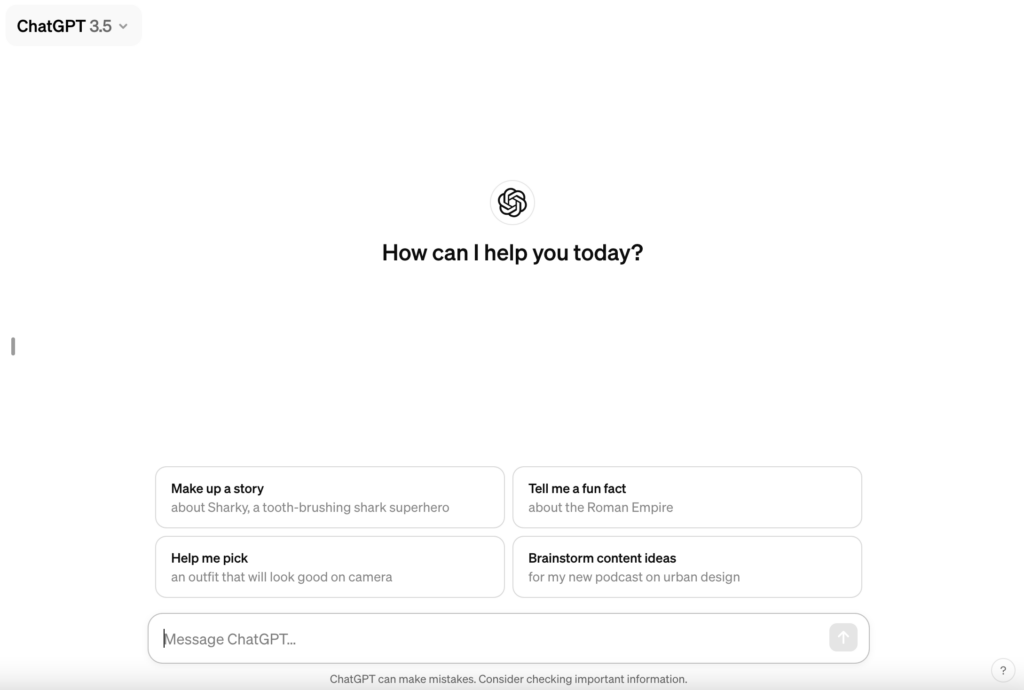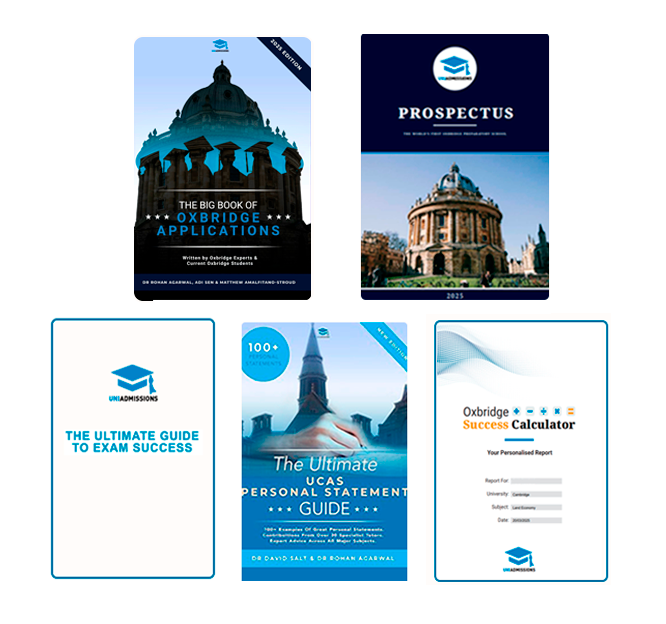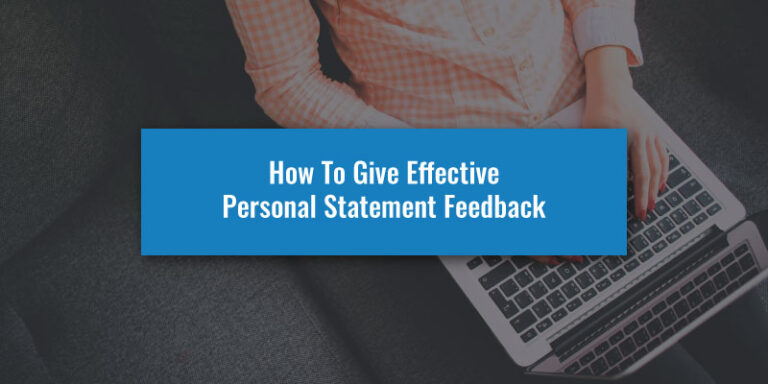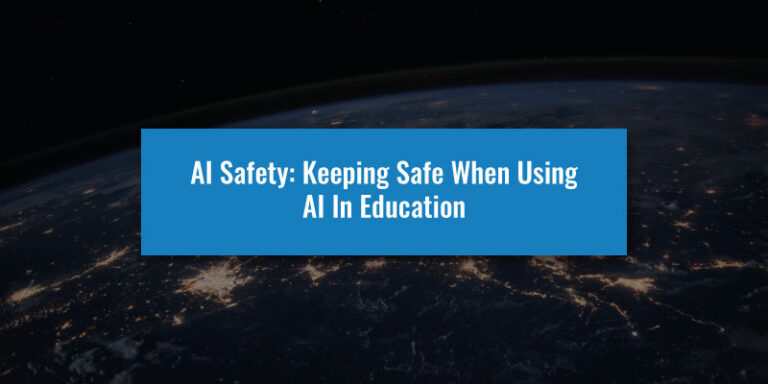With the advancement of AI tools over the past few years, many industries have been impacted by new programmes that can easily and efficiently generate content. This includes the education sector, which has seen a rise in AI-generated essays, projects and Personal Statements.
As this technology has become publicly available so recently, schools, universities and even the government are still trying to catch up in order to regulate its usage and protect the education industry as a whole. Currently, many issues surrounding AI are still very much in a grey area.
These tools have been of particular concern to the Universities and Colleges Admissions Service (UCAS), who process all UK university applications, including Personal Statements. In this guide, we’ll explore the current state of AI in Personal Statement writing, including if you’re allowed to use it, if it’s a good idea to use it and more. We’ll also take a look at an AI-generated Personal Statement to see if it offers a viable alternative to handwritten work. Let’s get started:
Short on time? Here’s a summary of the guide:
- Generative AI has exploded in popularity in the last few years thanks to the development and release of Chat-GPT. AI Generated writing is now very common in many industries.
- UCAS has confirmed that generative AI can be used to support Personal Statement writing, though the extent to which it is used is down to the applicant's discretion. AI detection is also used to find full AI text.
- AI Personal Statements lack the personality and unique information that a hand written statement offers, making them lower quality.
- AI can be a helpful tool for planning and editing your Personal Statement in small ways.
- AI should never be used to write full chunks of your statement or reword someone elses work.
What Is AI-Generated Writing?
AI stands for Artificial Intelligence, which is the name given to any form of independent intelligence displayed within machines. While the details of how these machines function are complex and vary from example to example, AI will typically use man-made code or learning algorithms to complete set tasks without input from a human.
While it may seem like a recent development, the history of science is longer than you may think with initial developments occurring in the 1950’s. AI was being explored during the development of the first computers during this timeframe, although not much progress was made until the 1980s when computers became more powerful and user-friendly.
Although many now think of AI-generated content and machine learning when hearing about AI, one of the most common uses of the technology that consumers would have experienced was its usage in video gaming, allowing non-player characters such as enemies to make decisions and react to player actions. Starting from the original versions of Pong, this technology has advanced to the point where an AI and human player could be indistinguishable from one another.

This same level of accurate human replication is now being seen in AI tools designed to generate content, which has spurred many debates and concerns about worker’s rights, scams and more. A famous concern with AI is its ability to act independently and potentially cause harm to humanity, but many scientists agree that the technology currently has not reached that stage (and may never).
Chat-GPT
The boom in AI-generated writing properly began in November 2022 when Open Ai, founded in 2015, publicly launched the first iteration of Chat-GPT. This is free-to-use software accessible on internet browsers that can act as a chatbot, search tool and AI writing tool all in one.
The system simply requires users to input a prompt into the text bar, be it a question, a request or just a conversation starter, to which the AI will generate an appropriate response. There are limitations in place relating to issues such as hate speech, politics and medical advice, but most users should find that they receive a relevant and coherent response.

After the launch of Chat-GPT, many companies moved forward in launching their own AI writing tools, including Microsoft, Google and Meta. Many of these tools are designed to appeal to different industries and use cases.
AI writing tools lead the charge for AI content, but now tools are widely available to generate images, video, audio and more. Many of these tools have extremely practical uses, but the advancement of these technologies that were previously believed to be impossible has heightened all of the concerns mentioned previously.
As things stand, the technology could still be considered in its infancy, so the rules and regulations for its usage are still very unclear. However, one organisation has made a fairly concrete stance on the issue; UCAS.

Prompt: University of Oxford on a sunny day
Craft a standout Personal Statement and much more with support from UniAdmissions
When you enrol on a UniAdmissions Full-Blue Programme, you will have access to unlimited hours of one-to-one support from an expert Oxbridge tutor who will support you through every step of the admissions process, including your Personal Statement. You’ll also have full access to hundreds of preparation materials, live courses, unlimited Personal Statement marking and much more.
Discover our Full-Blue Programmes by clicking the button below to learn how you can enrol and triple your chances of success.
Can I Use AI To Write My UCAS Personal Statement?
UCAS has published an official guide relating to AI usage in Personal Statements, in which they clarify their stance on using AI to both write and support your Personal Statement.
In short, UCAS does not allow applicants to submit Personal Statements that have been fully or substantially written by AI. For years, UCAS has required applicants to declare that their work is original, meaning it’s written by themselves and not copied from another source. Plagiarism has always been an issue in academia, with Personal Statements being no different, so systems have long been in place to detect plagiarised content.
While AI writing is technically a different case, the general principle still stands; an applicant’s Personal Statement must be written by themselves. AI writing would be considered copied from another source and thus is not allowed to be submitted.
However, this isn’t a black-and-white issue and UCAS hasn’t outright banned AI usage within the Personal Statement writing process. AI writing programmes are tools – tools that can be used for a variety of purposes, some of which UCAS agrees are helpful to applicants writing their statements. So how do we know what the right thing to do is?
Are AI Personal Statements Cheating?
This is a question posed within the official UCAS article and does not have a solid answer. Some people within the industry do believe that AI usage should be considered due to its potential power.
Those who use AI in any capacity when writing their statement may likely have an advantage over those who don’t. However, it’s important to consider that AI is widely available to the point that almost anyone writing a Personal Statement could utilise it if they wish. Therefore, the advantage couldn’t really be considered unfair as the vast majority of applicants could choose to use it themselves.
Another consideration is that, in most cases, applicants are using AI to write their Personal Statements because their writing skills may not be advanced enough to create a compelling and convincing piece of work. For many degrees, writing skills like this are not necessary for success, so the only reason that applicants would need to learn these skills is to help their Personal Statement stand out more, regardless of the quality of the actual content.
Applicants with a wealth of relevant experience in their field may not be able to articulate points in the most engaging manner, which is something that AI tools can help improve. If a highly qualified applicant writes a less engaging Personal Statement for a course that requires very few creative writing skills, should it be considered cheating to make their work a bit more readable with the support of AI? These are questions that still have not been fully answered.
Are AI Personal Statements Immoral?
Another argument against AI usage is that it is immoral and takes away from the integrity of one’s work. It’s certainly true that generating major portions of your work with AI is a bad practice and will generally result in lower quality and less personal output, but is this the case for all usage of AI?
As previously stated, AI is a tool that can be used to varying degrees. Where one applicant may use AI to write a full paragraph of their statement, another may use it to rephrase a clunky sentence that they are having difficulty with. AI writing tools offer more than just writing from a simple prompt, as they can be used to check, edit or suggest changes to one’s handwritten work.
When used in this context, would the use of an AI tool be considered any more immoral than the use of an automatic spell-checker? People have different stances on this issue but it appears that UCAS themselves not only condone this use of AI tools but potentially even encourage it.
Now that the technology has been made available, applicants are going to use it either way, so some may suggest that it is important that applicants explore its uses in a reasonable manner to stay competitive.
Are AI Personal Statements Plagiarism?
While it may seem like these AI tools are creating brand-new content from scratch, it’s important to understand that the databases that power these tools learn from millions of pre-existing sources. By scanning this wide array of content, the technology is able to rearrange and create seemingly new content based on what it has learnt.
However, this content always runs the risk of featuring plagiarised work that has not been altered enough to avoid detection. Unlike typical plagiarism, in which the culprit will know where their work has been copied from, it is next to impossible to know the original source of an AI-generated piece of work without running it through a plagiarism checker. Even then, the programmes that are available publicly are generally less powerful than those used by UCAS and other organisations.
Beyond plagiarism, programmes have now been introduced that can detect AI-generated content specifically. All of this is to say that, if you do choose to use AI at any point in the Personal Statement writing process, it’s always safer to alter any output you receive in order to avoid detection.
Access "The Oxbridge Application Vault"
- 300+ page ebook for Oxbridge Applicants
- 25 page ebook for Personal Statement
- 2h+ online course to succeed in any exam
- Online Oxbridge Success Calculator
- 12 page ebook about UniAdmissions

Example AI-Generated Personal Statement
Below is an AI-generated Personal Statement for an Economics & Management applicant at the University of Oxford:
Example Oxford Economics & Management Personal Statement
Question 1: Why Do You Want To Study This Course Or Subject?
I am deeply fascinated by the intersection of economics and management, and I believe this course will provide the ideal platform to explore both disciplines. Economics offers a lens through which we can understand global issues such as inequality, resource allocation, and market dynamics, while management equips us with the tools to solve complex business challenges and drive organizational growth. I am eager to develop analytical skills alongside practical leadership strategies that will allow me to make meaningful contributions in a rapidly changing world.
Oxford’s rigorous academic environment, combined with its diverse and intellectually stimulating community, is the perfect setting for nurturing my passion and broadening my perspective on how economic theory can be applied to real-world business scenarios.
Question 2: How Have Your Qualifications And Studies Helped You To Prepare For This Course Or Subject?
Throughout my academic journey, I have consistently pursued subjects that build the analytical, quantitative, and strategic thinking required for Economics and Management. In my A-levels, I excelled in Mathematics, Economics, and Business Studies, all of which provided a strong foundation in both theoretical and applied aspects of these fields. Mathematics, in particular, honed my problem-solving and statistical skills, enabling me to approach complex economic models and data with confidence.
Studying Economics has deepened my understanding of market structures, economic theory, and the global financial system, while Business Studies has exposed me to practical applications such as corporate strategy, marketing, and operations management. My extended essay on the impact of government policies on small businesses gave me valuable insight into the challenges of managing organizations in a dynamic economic environment.
Outside of formal studies, I have sought to further develop my skills by participating in economics clubs, business case competitions, and internships, where I applied theoretical knowledge to real-world scenarios. These experiences reinforced my desire to study Economics and Management at Oxford, where I can build on this foundation and explore more advanced topics in both fields. Together, my academic achievements and extracurricular activities have prepared me well for the rigorous demands of this course.
Question 3: What Else Have You Done To Prepare Outside Of Education, And Why Are These Experiences Useful?
Beyond academics, I’ve actively sought opportunities to deepen my understanding of economics and management through practical experience and extracurricular activities. I interned at a local startup, where I assisted with market research and financial analysis, gaining firsthand exposure to the challenges of managing a small business. This experience sharpened my analytical abilities and enhanced my understanding of how economic theory applies to real-world decision-making.
I’ve also participated in several business case competitions, where I worked in teams to develop strategic solutions for complex business problems. These competitions improved my teamwork, leadership, and presentation skills, while teaching me to think critically under pressure. Additionally, I have been a member of my school’s economics and debating societies, where I regularly engage in discussions on global economic issues, further refining my ability to articulate and defend ideas.
Outside of business-focused activities, I volunteer at a local charity, managing their budget and helping with event planning. This has developed my organizational and time management skills, and has instilled a strong sense of social responsibility, which I believe is crucial for responsible management. These experiences have provided valuable insights into the practical applications of economics and management, and I am excited to build on them at Oxford.
As you can tell, this is far from a high-quality Personal Statement. This statement has not been altered in any way from the original output, but there are still many fundamental issues that couldn’t be fixed without major rewrites:
The statement comes in at around 3,600 characters. Remember that the character limit is 4,000 and most competitive applicants will find that they need to cut their statements down in order to fit in this limit. Leaving this much space is never a good sign as it demonstrates you do not have a lot to discuss about yourself or your experiences.
This statement specifically references Oxford on multiple occasions – something that should never be done in a Personal Statement. You can only submit one statement with UCAS which gets sent to all of your university choices, so referencing a specific university will likely disqualify you from all of your other options.
This statement was generated using Chat-GPT, which originates in America. Therefore, various examples of Americanised spelling can be seen throughout the statement, such as “endeavor” and “rigor”. While not always a deal-breaker, these errors can mount up and look suspicious for UK-based applicants.
The overall tone and structure of this statement are very generic, hitting the necessary points without providing the deeper reflection that is required in high-quality statements. The experiences here are all made up from scratch, and while they could be replaced with your actual experiences, this still wouldn’t fix the issues found without a major rewrite.
In the answer to Question 2, several references to non-academic activities are made (“internships” and “extra-curricular activities” are both mentioned). The point of the three-question format is to separate the three major areas of an applicant’s experience, so having this discussion bleed into the other questions is rarely acceptable. Plus, discussions of activities are duplicated throughout the questions, such as the “business-case competitions” being mentioned in both Questions 2 and 3.
When Could AI be Used In Personal Statements?
The discussion around using AI in your Personal Statement has been fairly negative so far, but as UCAS suggests, there are uses for the tool that can be very beneficial and help elevate your work to a much higher standard. These are three ways in which AI could benefit your Personal Statement in small but effective ways:
Creating an Initial Personal Statement Skeleton
If you have absolutely no idea where to start with your Personal Statement, you may find it helpful to generate a statement similar to the one seen above. Although the set questions are there to help you form your statement, it can still be difficult to know how to effectively lay out the responses to them.
Of course, you shouldn’t expect this to be usable or act as a foundation for your work, but it will allow you to study the basic structure of a Personal Statement that matches your requirements. You can review the structure, see what works and doesn’t work and begin to brainstorm how all of your discussion points could fit into a similar structure.
There are guides and example Personal Statements available that may offer more helpful advice, but some applicants find it helpful to also see an example that demonstrates what they’re aiming to write, which is not always easy to find for all subjects.
Rephrasing Sentences
As we’ve already discussed, Personal Statements need to be well-written to stand out and grab the attention of admissions tutors. Regardless of the quality of the actual content, a boring, clunky or generally poorly written statement is going to impact your chances of being considered for an offer.
These creative writing skills and techniques can take months or years to learn and perfect, especially for applicants whose first language is not English. When so many courses have no need for these skills after the Personal Statement is written, sometimes it can be easier just to tidy up your writing with the help of an AI-writing tool once you’ve crafted the overall structure.
In this use case, the AI isn’t generating new content for you but simply using its understanding of language and literature to make sentences more compelling (at least in theory). What is and isn’t compelling to read is still subjective and requires a human element, so you shouldn’t assume the output is perfect and copy it straight into your statement.
Review the work and make any changes you feel appropriate. Alternatively, give it to someone you trust and ask for their feedback. Anything generated from an AI should be taken as a suggestion rather than a replacement, so avoid using too much-unaltered content from the tool.
It’s also important not to overuse the tool. AI rephrasing is best used to perfect key phrases within your statement, including the introduction and conclusion. Rephrasing the entire statement will put you at risk of plagiarism and failing to meet the UCAS standards of original content.
Shortening Your Statement
If you have a lot to write about in your statement, then you may find that you exceed the character limit by a good amount. Cutting out major portions of content is never easy to do, but it’s possible to use AI to suggest a series of smaller edits that make your writing more concise.
AI writing tools allow you to request a piece of text be shortened, sometimes by a specific amount. While the quality and effectiveness of the output can vary, most of the time the tool will be able to point out where words can be cut and phrasing can be altered to reduce the character count.
With enough edits made throughout the statement, you should find that you have made a significant reduction in length without cutting out any major discussion points.
In some cases, an applicant may wish to extend the length of their statement using AI to get closer to the 4,000-character limit. While this is possible using the same principles as shortening text, this isn’t something we would recommend. Doing this will make your statement longer, but it will do so by adding unnecessary fluff and overly long phrases without adding meaningful content. If you need to make your statement longer, it’s always better to include an additional discussion point or expand on your reflection within your content.
When Should AI Never be Used In Personal Statements?
We know how AI could benefit our Personal Statement, but let’s review three use cases for AI writing tools that should never be considered:
Writing All or Most of Your Personal Statement
It should already be clear by now that AI should never be used to directly write a significant portion of your statement, such as a full response to one or more of the questions. Whether you submit it unedited or with minor changes, the result is always going to be lower quality and at risk of being detected for plagiarised or AI-generated content. This will put your entire application at risk, so it’s not worth it just to save some time on the writing process.
Creating Fake Content
It may be that you haven’t engaged with your subject as much as you should have, be it through work experience, wider reading or extra-curricular activities. In cases like these, it may be tempting to boost your application by making up some discussion points for Questions 2 and 3, either yourself or with AI.
It should go without saying, but telling any sort of lie in your Personal Statement is not permitted and will typically end with disqualification if found out. Embellishing truths is also a risky move, so it’s always a good idea to stick to the truth instead of trying to write what you think the admissions tutors want to hear – what they actually want to hear is your truthful, personal experience and motivations.
Rewording an Existing Personal Statement
There is a wide variety of Personal Statement examples available online and in books, many of which were actual statements submitted by successful university applicants. These examples are extremely helpful to analyse, especially if they include feedback and suggestions, but it’s also easy to use these examples for more dishonest purposes.
We’ve already seen how the Rephrase function available in AI writing tools can help your statement, but it’s also theoretically possible to take an existing Personal Statement and rephrase it until it’s not recognisable while still featuring the qualities that made it good.
However, this is a very risky move that will most likely not pay off. Although AI is capable of rephrasing text to make it unrecognisable to the average human, plagiarism detectors are far more advanced and have a much wider scope in terms of knowledge of existing content. These detectors are designed to pick up on similarities in structure and patterns within work, so even if every word has been changed in a Personal Statement, there is still a chance these detectors can pick up on the similarities.
The only way to circumvent this is to go through and manually make significant alterations to the wording and structure. Plus, most example Personal Statements are written in the previous free-form style of writing, which is no longer used by UCAS. At that point, you may as well start from scratch as you’ll have a much more personal piece of writing that will likely perform better.
With that being said, we still highly recommend looking at as many example Personal Statements as possible in order to inspire your own work and potentially learn new writing techniques. Our Successful Personal Statement library features over 20 successful statements from Oxbridge students, complete with a full analysis of the content and writing.
The Future of AI and UCAS Personal Statements
As things currently stand, AI technology has advanced incredibly quickly and will likely become an everyday part of our lives (if it hasn’t already). However, there is still a lot of progress to be made so it’s likely that, in a few years time, AI usage in Personal Statements will look very different from how things are now.
Programmes like Chat-GPT are constantly learning new information by crawling the internet. As these programmes learn more, they will become better and better at replicating human language and accurately answering very specific prompts. As this technology advances, it may become harder for organisations like UCAS to keep up with regulating and detecting AI work.
The world of university applications is always changing, be it from new technology, new processes, new admissions tests and more. It’s hard to keep track of them all, but AI writing is one of the most important issues to consider right now, not just for Personal Statements but for studying and revision as well! We hope that this guide has helped inform you about the potential of AI and how you can use it effectively and safely within your own work.
The most important thing to remember is that a Personal Statement is personal, and no amount of technology will be able to replace the thoughts, experiences and ideas that you hold. Writing a Personal Statement can be tough, but admissions tutors will be able to tell when an applicant has put the effort in to write something truly meaningful.
With that being said, AI isn’t the only way to support your Personal Statement journey. At UniAdmissions, we have spent over a decade developing the formula for Oxbridge success, which includes writing the perfect Personal Statement through one-to-one tuition, unlimited feedback and a vast array of comprehensive materials. If you would like to boost not only your Personal Statement but your entire application, then discover our Full-Blue Programmes today and book a free admissions consultation to learn how you can enrol.
First impressions count. Learn how to craft the perfect Personal Statement that demonstrates your suitability to Oxbridge admissions tutors
At UniAdmissions, we are specialists in supporting applicants for Oxbridge, Medicine and more. With our expertly crafted curriculum, extensive preparation materials and innovative Portal, we have developed programmes that cater to applicants of over 30 subjects across Oxford, Cambridge and more.
Discover our Full-Blue Programmes by clicking the button below to learn how you can enrol and triple your chances of success.







